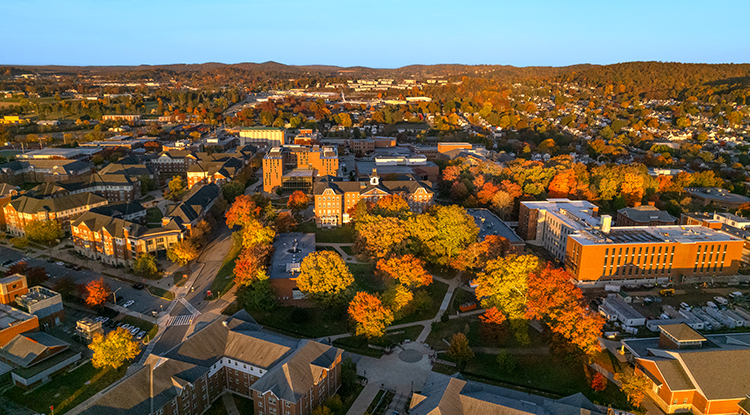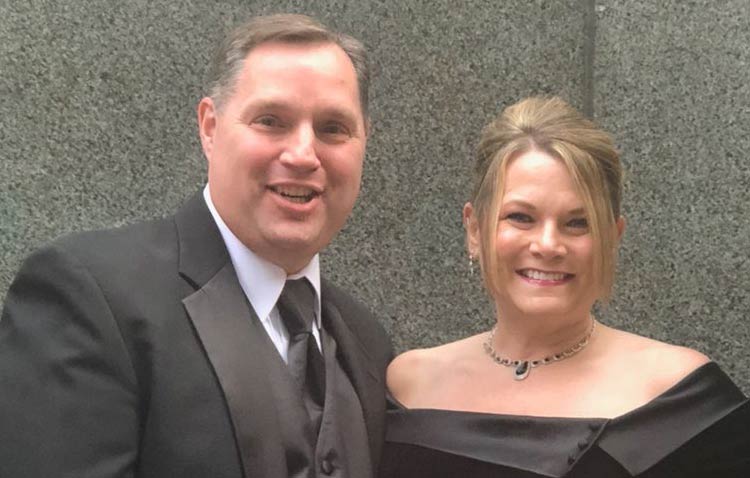
Making an Impact in Rural Pennsylvania
IUP’s Proposed College of Osteopathic Medicine
Our nation—and especially rural Pennsylvania—is in a healthcare crisis. There are simply not enough healthcare providers, particularly primary care physicians. At IUP, we hear this as a call to action, and we are responding by establishing a college of osteopathic medicine.
Mission, Vision, and Values
Our Mission
The mission of the Indiana University of Pennsylvania’s proposed College of Osteopathic Medicine, recognizing our roots as a public institution, is to increase the number of community physicians throughout rural and underserved Pennsylvania while creating a national model for rural healthcare. We will fulfill this goal by providing an innovative program of osteopathic medical education that is evidence-based, inspiring, compassion-focused, holistic, community-centered, and affordable.
Our Vision
The vision of the Indiana University of Pennsylvania’s proposed College of Osteopathic Medicine (proposed IUPCOM), in support of our roots as a public institution and our mission, is to become a national leader in the provision of affordable and accessible pre-clinical, clinical, graduate, and continuing medical education with a focus on the development of osteopathic physicians equipped to transform the landscape of rural and underserved primary care throughout Pennsylvania and our nation. To do this, the proposed IUPCOM will become a leader in leveraging both internal and external partnerships to create an interprofessional educational network emphasizing expertise in medical research, community outreach, and evidence-based clinical care to deliver timely, high-quality, and cost-effective medical care to our nation’s most under-resourced rural populations.
Our Values
The core values of the Indiana University of Pennsylvania’s proposed College of Osteopathic Medicine (proposed IUPCOM), in support of our roots as a public institution and our mission, are:
- Accessibility: provide access to affordable and comprehensive medical education across the continuum of physician development, with a focus on individuals from rural and socioeconomically challenged backgrounds and from within the Pennsylvania State System of Higher Education (PASSHE);
- Commitment to the Principles of Osteopathic Medicine: underscore the four tenets of osteopathic medicine in our research, teaching, and community service foci, with an emphasis on the importance of holistic and self-healing principles.
- Compassionate Care and Service: inspire compassion in all that we do and aim to transform how medical care is delivered in rural and underserved primary care shortage areas in Pennsylvania, the mid-Atlantic region, and our nation.
- Integrity, Respect, and a Culture of Inquiry: foster a culture of continuous, lifelong learning with an inherent drive to continually improve and innovate in all that we do; and
- Accountability and Teamwork: inspire a community of learners with a focus on ethical actions and including the continuum of learners from rural communities.
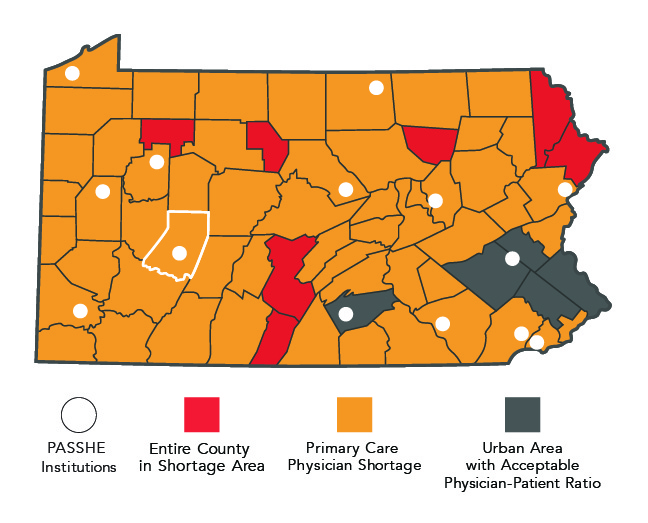
Creative Solutions to Rural Challenges
Pennsylvania is in the midst of an acute healthcare crisis due in large part to a lack of primary care physicians. There are not enough physicians to provide care to Pennsylvania’s citizens—especially in rural areas. IUP is moving to address this critical need for well-trained physicians by establishing a college of osteopathic medicine.
Anticipated shortage of primary care physicians in Pennsylvania by 2030
Primary care physicians per 100,000 Pennsylvania residents—about half the national average for rural areas
colleges of osteopathic medicine in Pennsylvania (all at private universities)
Meet the Team
“IUP’s college of osteopathic medicine will focus on identifying, recruiting, and educating those hidden healthcare heroes who may not even realize their own potential to become our next generation of physicians. We will carefully refine and document our successes, creating a revolutionary national model for scouting and bolstering future healthcare leaders, especially for our rural communities.”
Miko Rose, DO, FNAOME
Founding Dean, IUP Proposed College of Osteopathic Medicine
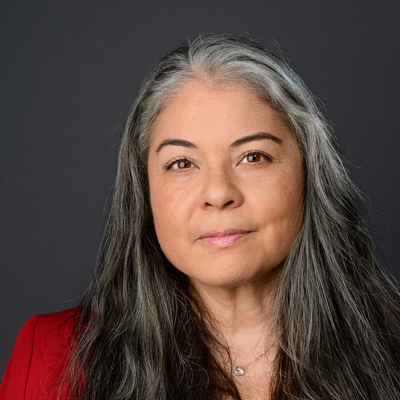
Founding Dean, IUP Proposed College of Osteopathic Medicine
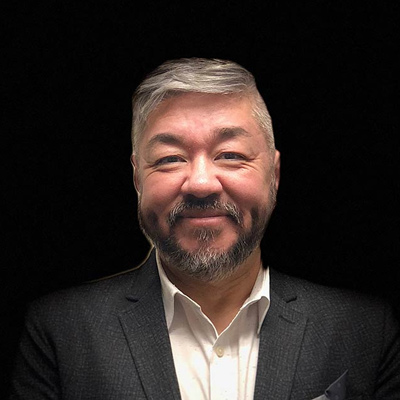
Associate Dean of Preclinical Affairs

Lisa Estrada
IUP Executive in Residence
Former Executive at ScionHealth
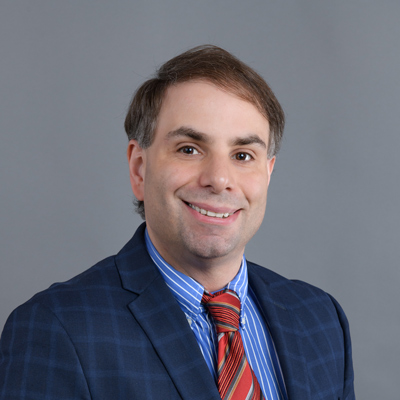
Associate Dean of Clinical Affairs and Graduate Medical Education
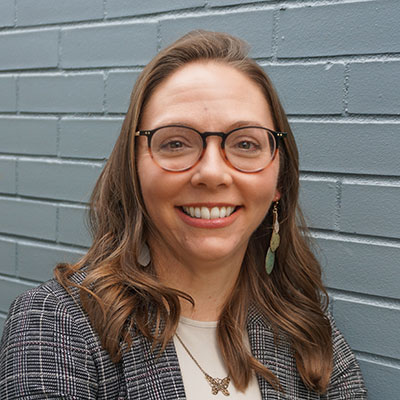
Melanie Muscatello
Management Technician

Jack Brose, DO, FAAFP
Consultant and Executive Mentor
Executive Dean Emeritus/Professor, Ohio University
Steering Committee
Mr. Michael Barber
Director, Dana Science R&D, Advanced Analytics
Highmark Health
Dr. Sharon Cowden
Pediatrician, Co-founder, Strength and Courage
EPIC Food Insecurity/PAAAP
Ms. Lisa Estrada
IUP Executive in Residence
Former Executive at ScionHealth
Dr. George Garrow
Chief Executive Officer
Primary Heath Network
Dr. James Kinneer
Chief Human Resources Officer
Indiana Regional Medical Center
Dr. Patrick Shannon
Emergency Medicine Physician
Indiana Regional Medical Center
Mr. Stone Shugarts
IUP Pre-med Student
Dr. T. Clark Simpson
Chief Medical Officer
Punxsutawney Area Hospital
Dr. Amanda Vaglia
Family Medicine Residency Program Director
Indiana Regional Medical Center
Advisory Council
Dr. Trina Alba
Chief Medical Officer
Penn Highlands Healthcare
Dr. Barbara Barnes
Associate Dean and Associate Vice Chancellor,
University of Pittsburgh; Vice President, UPMC
Dr. Elizabeth Dunmore
Chief Medical Officer
Conemaugh Duke Lift Point
Dr. George Garrow
Chief Executive Officer
Primary Health Network
Dr. Deborah Gentile
Medical Director
Saint Francis University
Ms. Nichole Geraci
President/Chief Executive Officer
ACMH Hospital
Mr. Joe Gribik
President/Chief Executive Officer
Pennsylvania Mountains Healthcare Alliance
Dr. Richard Neff
Chief Medical Officer
Indiana Regional Medical Center
Dr. John Roth
Chief Executive Officer
Broad Top Health & Wellness
Dr. T. Clark Simpson
Chief Medical Officer
Punxsutawney Area Hospital
Mr. Jack Sisk
President
Punxsutawney Area Hospital
Dr. Brian Stratta
Chief Executive Officer and Chief Medical Officer
Hyndman Health Centers
Dr. Richard Whalen
Internal Medicine Physician
Titusville Area Hospital
Mr. Steve Wolfe
President
Indiana Regional Medical Center
$4 million in annual visitor spending in the local community, because of a college of osteopathic medicine.

What Is a Doctor of Osteopathic Medicine?
Doctors of osteopathic medicine, or DOs, complete four years of osteopathic medical school, with an emphasis on preventive medicine and comprehensive patient care. They are trained to recognize the interrelated unity among all systems of the body, each working with the other to promote overall health and wellness.

Why a College of Osteopathic Medicine?
More than half of the graduates of osteopathic medicine programs pursue a career in primary care, and many choose to practice in rural areas. IUP’s college of osteopathic medicine will focus on recruiting promising students from underserved areas who have a passion for serving these communities and an understanding of the importance of primary care. Enrollment at colleges of osteopathic medicine is at an all-time high, and there are only three of these colleges in Pennsylvania—none at public universities.
of doctors of osteopathic medicine are in areas with shortages of health professionals
of DOs practice as primary care physicians
increase in applicants to colleges of osteopathic medicine since 2011

Why IUP?
A college of osteopathic medicine will be a natural extension of IUP’s academic and research strengths in health sciences and our commitment to community health and wellness. The infrastructure—including strong alumni, legislative, and community support—is there. A nationally respected founding dean and associate deans are in place. Our students are ready for and excited about their futures in healthcare, and a college of osteopathic medicine will play a major role in keeping talent here in Pennsylvania, especially in rural communities. IUP is located in a rural region experiencing a significant physician shortage.
-
30% of current IUP students are in STEM-H (STEM plus healthcare) majors.
-
IUP is 1 of 93 public universities in the US with a High Research Activity designation.
-
Kopchick Hall, IUP’s new, $90-million science building, provides state-of-the-art facilities and new opportunities for math and science study and research.
-
IUP’s long-range facilities master plan identifies a home for health sciences and for the proposed college of osteopathic medicine.

Improving Quality of Life—Including Economic Vitality—through Healthcare Access
A college of osteopathic medicine will be a great source of pride for IUP, for our community—including alumni and friends—and for the commonwealth. It will enhance IUP’s reputation and is predicted to increase enrollment at IUP and throughout Pennsylvania’s State System of Higher Education.
People want to live and work in communities with access to healthcare. As new healthcare professionals begin to practice, businesses will benefit from a healthier and more robust workforce, with reduced sick days and increased productivity.
Colleges of osteopathic medicine in other communities have been shown to inspire “spillover” economic development.
For example:
-
Biomedical companies are started.
-
New healthcare companies are attracted to the region.
-
Research sparks technology transfer, commercialization, and economic value through improvements in prevention, treatment, and practice.
IUP in the News

*A Proposed College of Osteopathic Medicine (COM) with applicant status from the American Osteopathic Association’s (AOA) Commission on Osteopathic College Accreditation (COCA) may not recruit, accept applications, admit prospective students, or begin instruction.



